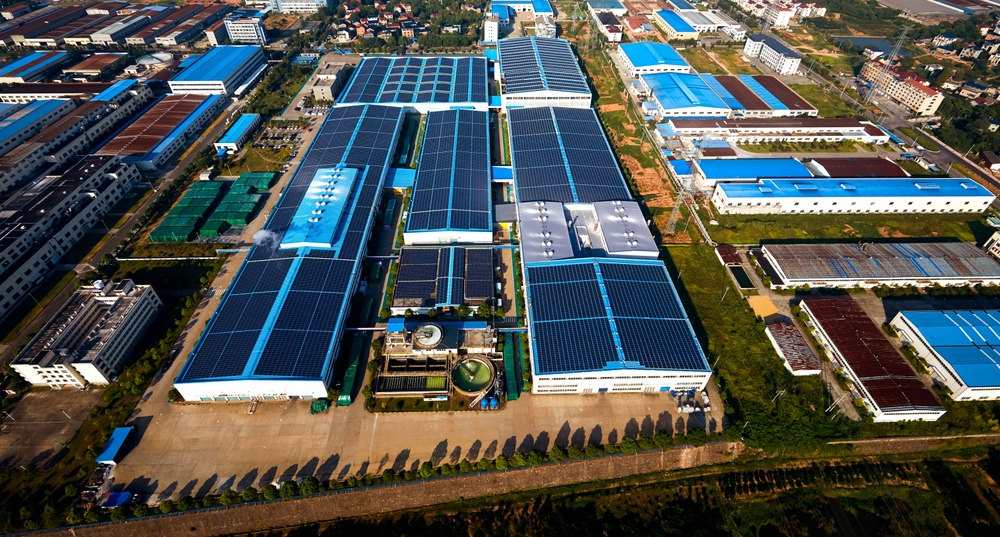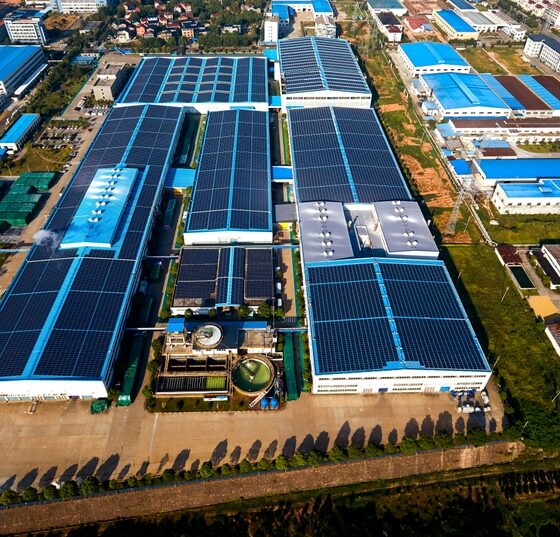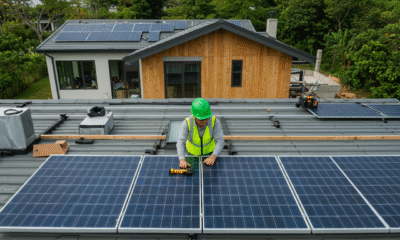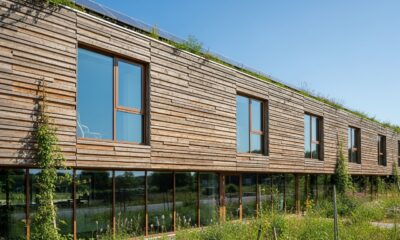

Best Practices
Environmental and Economic Benefits of Solar Powered Buildings
We have talked a lot about some of the ways that building managers and contractors can make buildings eco-friendlier. We have emphasized the merits of investing in solar power.
There are a lot of practical nuances to take into consideration when investing in solar power. For example, you need to choose the right solar panels to make sure your property has a reliable supply of electricity.
Solar energy, derived from the abundant power of the sun, has emerged as a clean, sustainable, and economically viable alternative to fossil fuels. With its numerous environmental and economic benefits, solar energy is transforming the way we generate electricity. Therefore, it should be no surprise that global consumers and businesses are projected to spend over $300 billion on solar power by 2030.
In this article, we will explore why using solar energy in the buildings you manage is good for the environment and the economy, highlighting its role in mitigating climate change, promoting energy independence, and driving job creation.
Solar Power is a Renewable and Clean Energy Source for Buildings
Solar energy is a renewable energy source, meaning it is naturally replenished and will never run out. By harnessing the sun’s rays and converting them into electricity using photovoltaic panels or solar thermal systems, solar power produces no greenhouse gas emissions during operation. This clean energy generation contributes significantly to reducing carbon emissions, air pollution, and the negative impacts associated with fossil fuel combustion. Solar energy solutions are a key component in the transition to a low-carbon future and combating climate change.
Mitigating Climate Change
Solar energy plays a crucial role in helping building managers that are trying to mitigate climate change. The burning of fossil fuels for electricity production is a major contributor to greenhouse gas emissions. By replacing traditional energy sources with solar power, we can significantly reduce carbon dioxide and other harmful emissions from your buildings. Solar energy helps to decouple economic growth from carbon-intensive energy consumption, allowing us to meet our energy needs sustainably. With continued adoption of solar energy, we can work towards limiting global temperature rise and protecting the planet for future generations.
Energy Independence and Security
Solar energy promotes energy independence and security by reducing reliance on fossil fuel imports. As a decentralized energy source, solar power can be generated on-site or in proximity to the point of consumption, reducing the need for long-distance transmission and vulnerability to supply disruptions. By tapping into the sun’s energy potential, countries can enhance their energy security, diversify their energy mix, and reduce their dependence on fossil fuel imports. Solar energy empowers individuals, communities, and nations to take control of their energy production and consumption.
Cost Reduction and Affordability
Solar energy has experienced a remarkable decline in costs over the years. Technological advancements, economies of scale, and supportive policies have contributed to a significant reduction in solar panel prices and installation costs. As a result, solar energy has become increasingly affordable and accessible to homeowners, businesses, and communities. The declining costs, coupled with incentives such as tax credits and net metering, make solar energy an attractive option for individuals and organizations to save on electricity bills and achieve long-term cost savings.
Solar Power Can Be a Great Option for Building Managers Trying to Reduce Costs and Help the Planet
More buildings than ever are going green. This year, it is projected that the market for eco-friendly buildings will be worth $108 billion. One of the ways buildings are trying to be more sustainable is by investing in solar power.
Solar energy offers a multitude of benefits for the environment and the economy. It is a renewable and clean energy source that mitigates climate change, promotes energy independence, and reduces dependence on fossil fuels. Solar power drives economic growth, creates jobs, and enhances energy security. As we harness the power of the sun, embracing solar energy becomes a crucial step towards building a sustainable future that prioritizes environmental stewardship, economic prosperity, and a resilient energy system.

-

 Best Practices11 months ago
Best Practices11 months ago8 Tips to Complete Your Eco-Friendly Construction Project on Time
-

 News4 months ago
News4 months agoHow Dirty Air Ducts Harm the Planet and Your Health
-

 Best Practices11 months ago
Best Practices11 months agoPitfalls of Using AI for Marketing Your Green Construction Business
-

 Best Practices8 months ago
Best Practices8 months agoGreen Construction Reduces Erosion and Protects Ecosystems
-

 Best Practices10 months ago
Best Practices10 months ago5 Major Benefits of Estimating Tools for Green Construction
-

 Environment3 months ago
Environment3 months agoSustainable Revegetation Solutions That Revitalise Victorian Landscapes
-

 Best Practices4 months ago
Best Practices4 months agoDouble Glazing Can Increase EPC Rating for Eco-Friendly Buildings
-

 News4 months ago
News4 months agoLouvered Pergolas: A Smart Choice for Eco-Friendly Builders











